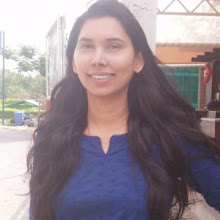“The European Union and India could together explore synergies between "Digital India" and the EU's "Digital Single Market" initiative. This could be implemented by closer cooperation on important topics such as standardisation in information and Communication technologies (ICT) as well as ICT research and innovation.”
This was stated by the Ambassador of the European Union, Dr João Cravinho, at the media seminar, #Digilogue2015, held in New Delhi on 27 April. The seminar discussed the topic 'Digital and Social Media in Democratic Societies: Sharing Experiences from the EU & India.'
Ms. R Jaya, Joint Secretary, Ministry of Information and Broadcasting,Government of India, in her keynote address, outlined the digital and social media strategy of the government of India and highlighted the achievements of the government in leveraging the new media in its information and communication campaigns.
Talking about Internet Governance, Dr Cravinho stated: “I would like to invite India to support the development of a truly inclusive and global multi-stakeholder model by backing the transition of the Internet Assigned Numbers Authority (IANA) stewardship to the multi-stakeholder community and the renewal of the mandate of the Internet Governance Forum. It is necessary to work fast on this, as continuing with the status quo is not politically sustainable.” On ICT standardisation, the EU Delegation has just launched a new cooperation project which will support cooperation between the European and Indian telecom standards development organisations (ETSI and TSDSI) and their work with stakeholders from government, industry and research.
In her presentation, the Joint Secretary Ms Jaya described the new trend ofTwiplomacy – PMO leveraging Twitter to interact with citizens, world leaders and providing updates. She shared the digital and social media outreach programme for the key public initiatives of the Indian Government such as Make in India, Digital India, My Clean India, Ganga Manthan, Beti Bachao Beti Padhao, Shramev Jayate etc. Issues around content management, social media response management, social media sentiment analytics and social media trends and tracking were discussed.
India currently has 213 million active users of the Internet, of which 112 million are Facebook users, 22.2 million twitter users, and 26 million LinkedIn users. Twitter has emerged as the platform of influencers. As for mobile phones, there are 572 million urban and 398 million rural users. 40% of broadband users are in rural area.
The Panel Discussion on “What can public institutions, civil societies, media and corporate learn from each other's experiences in the area of digital and social media” included David Tunney @DavidJTunney - Head of Social Media, European External Action Service, Brussels, Chinmayi Arun @chinmayiarun - Centre for Communication Governance, National Law University, Nikhil Pahwa –@nixxinMedianama, Volker Pabst @volkerpabst – NZZ (Swiss Newspaper), and Osama Manzar - Digital Empowerment Foundation. Pranjal Sharma @pranjalsharma - Columnist, BusinessWorld moderated the discussion.
Issues related to internet policy; successful use of digital and social media by public institutions, civil societies, media and corporates; how to tackle misleading information on social media, importance of research in drafting internet policy etc. were discussed during the panel discussion. This facilitated the exchange of opinions and expertise regarding how digital and social media has elicited large community response, and brought about social change and economic progress.
Pranjal Sharma said, “Challenges and opportunities of social media all around the world in democratic societies are common. It would be good for constant dialogue to share best practices.” David Tunney recounted European experiences in this field and stated that digital and social media is helping to get more people interested and active in political affairs at the European level. For example, one million tweets were received related to European Parliament elections recently. Similarly there are political parties like “Swedish pirates” and Italy’s “5 stars” which are built around/on Internet.
Chimnayi Arun said that “India needs to prioritise research so that policies are well informed. We could learn a lot from countries like Germany and UK in this regard.” Osama Manzar, the panellist with the maximum on-ground experience in India was of the opinion that “We have to think digital rather than do digital. It is easy to setup a page but hard to keep the engagement on.”
Nikhil Pahwa brought forward another perspective and said that “There is a generation change that has happened. The Government and institutions are trying to create frameworks for regulations to adapt to a citizenry that already has.” Volker Pabst put forward International media perspective and said that “As a media house, in the beginning we looked at social media as a challenge and not as an opportunity but this has changed dramatically over the last few years.”
True to the subject of the seminar, the event made full use of digital and social media. While panelists and audience were tweeting live during the course of the seminar it was also webcast live on YouTube.



Comments
Post a Comment